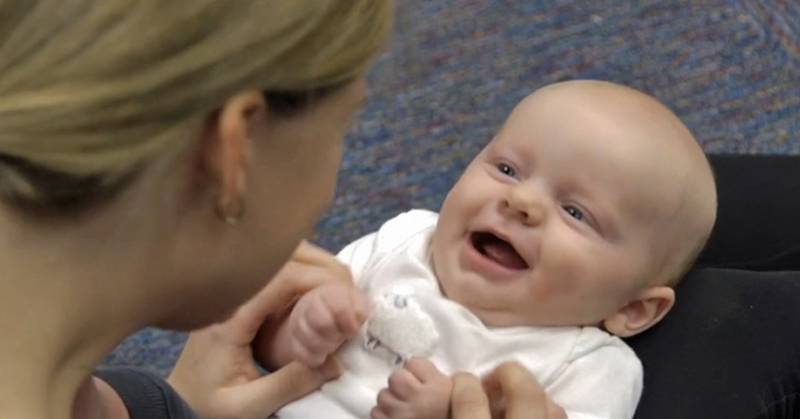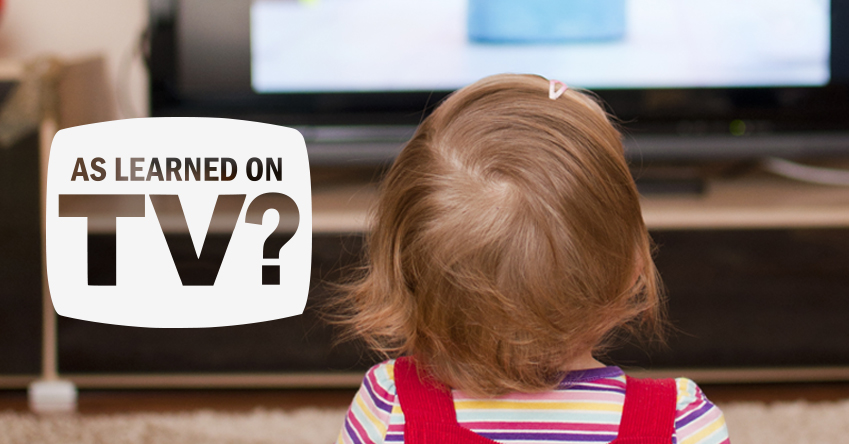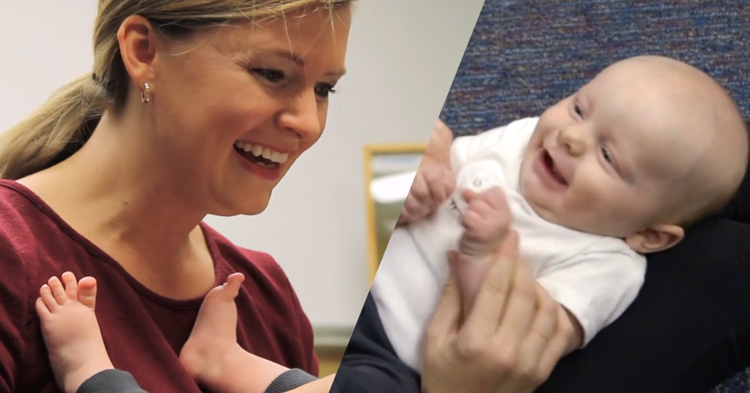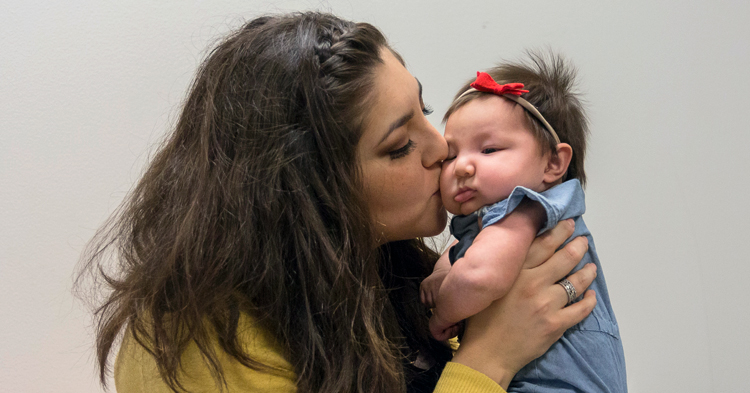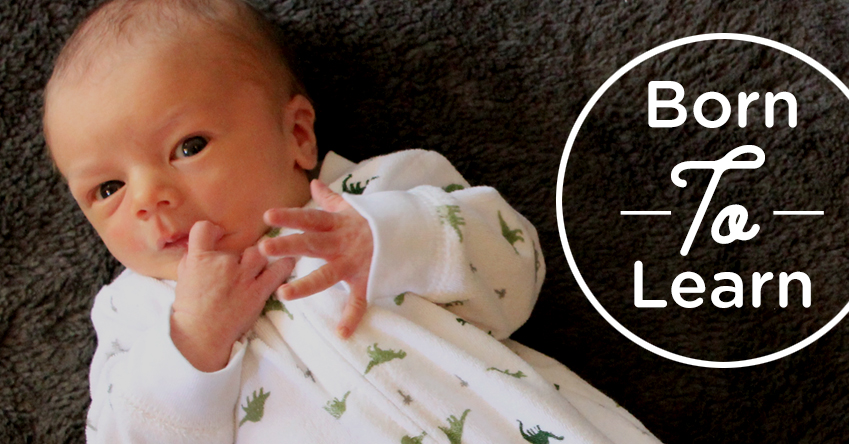
When my wife and I first brought Graham home from the hospital, we were anxious and excited. (“They let us bring him home without the help of other, more-qualified adults?” we asked ourselves out loud in semi-disbelief.) All of the sudden we had this other human in our house to love and care for on our own, and we truly felt like we had no idea what we were doing. Looking back, those first few weeks were a blur of anxiety mixed with lots of joy and love. We ended up learning what to do right along with Graham.
What we didn’t fully grasp in the moment was just how much he was learning. Turns out the baby brain is nothing short of a miracle. When Graham was born, his brain was ready to soak up experiences and interaction from his surroundings. Inside that cute and cuddly new person was a mind prepared for and expecting to see, hear and feel new things. That’s right – on day one, your baby’s brain is ready to start learning, and some studies suggest this is already happening in utero, before birth.
(I don’t want to give you the impression that I’m an expert on brain development or early childhood. I’ve just been lucky to work with First Things First over the past few years, just as I became a first-time father. It’s been an amazing education for me about how, and how much, young children develop in the first few years of life. Here’s more of what I’ve learned….)
A baby’s brain develops through the use of their senses; by touching things, hearing words and by watching you. By experiencing new objects and sensations, their brain starts to build connections. A new parent can encourage healthy brain development by letting them reach for a new toy or feel the texture of different blankets or (like we did a lot with Graham) taking them outside to feel the breeze and to hear the birds sing. (He loved watching the birdies!)
The most important way a parent can support healthy brain development is by building a strong relationship with your baby. Babies develop best when they feel safe and secure, when the caring adults in their lives respond to their needs, and when you talk, sing and play with them.
That’s why, even though it felt odd to us at first, you can go ahead and start having conversations with your infant. It’s also a good idea to begin reading to your baby as early as possible. They may not respond much in the beginning, but over time they’ll start to answer you in more sophisticated ways. You’re sparking new connections in their minds, and you will have grown closer together in the process.
Learn more: Make “Smart Talk” part of your daily routine .
It wasn’t completely obvious that Graham was developing all of these brain connections when we first brought him home. We were more focused on spending time interacting with him, showing him love and trying to get some sleep. Fortunately, a baby can somehow turn all of that parental attention and stimulation into brain building.
As a new parent, the important thing to remember is that it’s never too early to start. Your baby is born ready to learn from you, from day one.
J. Jason Smith is President and Executive Creative Director at Magnetry.


